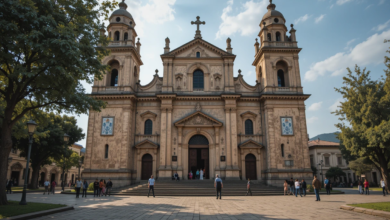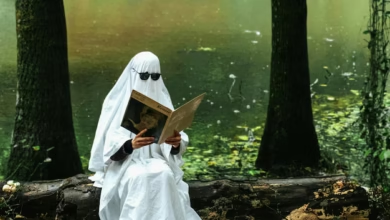The Dead Don’t Hurt: Exploring the Concept of Pain and Afterlife

The phrase “the dead don’t hurt” offers a contemplative reflection on one of humanity’s most profound questions: what happens to us after we die? For many, the idea of pain and suffering is intimately tied to being alive—something we fear, endure, and, at times, try to avoid. However, the idea that the dead are free from pain is deeply rooted in various cultural, spiritual, and philosophical beliefs. This notion provides comfort and answers to existential questions regarding mortality and the afterlife.You know about the dead dont hurt and openrendz.
Pain and Suffering in Life
To fully understand the meaning of “the dead don’t hurt,” it’s essential to first examine the concept of pain in life. Pain, whether physical or emotional, plays a critical role in human existence. It signals that something is wrong with our body or mind, prompting us to seek solutions, comfort, and healing. While pain is inevitable, it is also transient; it can be alleviated by treatment, rest, or simply by the passage of time. Unfortunately, despite our best efforts, suffering—whether caused by illness, trauma, or loss—remains a significant part of the human experience.
Pain also has a psychological dimension. Emotional suffering, such as grief or heartbreak, can be just as debilitating as physical pain. These types of pain can linger, affecting our mental health and overall well-being. Thus, it’s no surprise that many people fear the end of life, knowing that suffering—whether physical or emotional—can accompany it. In the face of death, the idea that the dead no longer experience pain offers an immense sense of relief.
The Idea of the Afterlife
Different cultures, religions, and belief systems offer various perspectives on what happens after death. For many, the afterlife is a place or state of existence where suffering is eliminated. The concept of eternal peace, freedom from pain, and the cessation of suffering are recurring themes in religious and spiritual traditions.
For example, in many branches of Christianity, the idea of Heaven offers a comforting vision of the afterlife where the soul is free from the troubles of the mortal world, including pain and anguish. Similarly, in Buddhism, the ultimate goal is to achieve Nirvana, a state of liberation from suffering and desire. These beliefs suggest that once life ends, so too does the pain associated with it. The dead, in this context, no longer hurt because they have transcended the limitations of the physical and emotional suffering inherent in human life.
In some cultures, the notion of the dead no longer experiencing pain is tied to the idea of peace and eternal rest. The concept of the “peaceful repose” of the dead can be found in various funerary traditions, where the body is laid to rest with the belief that the deceased have entered a state free from earthly struggles. Whether this is interpreted as an eternal sleep, reincarnation, or entry into another realm, the dead are seen as being released from the pain they once endured in life.
Philosophical Reflections on Pain and Death
Philosophers have long grappled with the nature of death and pain, offering their perspectives on the relationship between the two. One well-known idea is the notion that death is a form of liberation from the burden of existence. The ancient Greek philosopher Epicurus famously said, “Death is nothing to us, for when we are, death is not, and when death is, we are not.” In this view, death is not something to be feared, because it marks the cessation of all experiences, including pain. Since pain is an experience tied to life, once life ceases, so does pain.
From a psychological perspective, the idea that “the dead don’t hurt” can also be interpreted as a way of coping with loss. When we mourn a loved one, the pain we feel is often seen as an attachment to that person’s physical existence. The idea that they no longer suffer provides some comfort during grief, allowing those who remain to imagine their loved ones at peace.You know about the dead dont hurt and openrendz.
The Comfort of “The Dead Don’t Hurt”
The belief that “the dead don’t hurt” is not merely a spiritual or philosophical notion but also a source of comfort for those who are grieving. It allows the living to imagine their loved ones in a peaceful state, free from the pain they may have experienced in their final days. For those facing terminal illness or loss, this belief offers solace and the reassurance that suffering will come to an end, both for the person who has passed and for those left behind.
Ultimately, the idea of “the dead don’t hurt” taps into the universal human desire for peace and resolution. It offers a sense of closure and helps individuals accept the inevitability of death while providing an emotional buffer against the harsh realities of loss. Whether grounded in religious faith, philosophical reflection, or personal comfort, the thought of a pain-free afterlife is one that continues to provide hope and tranquility for countless people across the world.You know about the dead dont hurt and openrendz.
Conclusion
“The dead don’t hurt” represents more than just a philosophical statement or religious belief—it reflects a fundamental human longing for peace, both in life and in death. Whether it is understood as a spiritual reality, a philosophical reflection, or a psychological coping mechanism, the concept speaks to the universal desire to be free from suffering. It’s a reminder that while pain may be inevitable in life, the end of life offers a release from its grip. As we reflect on death, this comforting thought provides a sense of relief and closure for those who seek to understand and come to terms with the complexities of existence and mortality.



